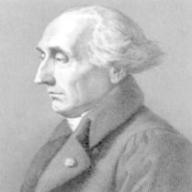capacitors
2011-03-12 9:09 pm
圖片參考:http://imgcld.yimg.com/8/n/HA00414085/o/701103120051713873389100.jpg
How would you deal with the question?
回答 (1)
2011-03-12 10:24 pm
✔ 最佳答案
The answer is clearly option DThe charging current decreases exponsentially with time. When the capacitor is nearly fully charged, the current, and hence the rate of charge input into the capacitor, is almost zero. That is, the rate of energy input approaches zero.
You could tackle this problem mathematically,
Energy stored in a capacitor E = (1/2)CV^2
where C is the capacitance and V is the voltage across the capacitor
dE/dt = (C/2).(2V).dV/dt
Since V = Vo(1- exp(-t/RC)
dV/dt = (Vo/RC).exp(-t/RC)
dE/dt = C.[Vo(1-exp(-t/RC)].[(Vo/RC).exp(-t/RC]
Hence, the expression for dE/dt consists of two time varying terms, one increases exponetially with time, and the other decreases exponentially with time, the result of which is what would be shown in the graph in option D.
dE/dt =
收錄日期: 2021-04-29 17:38:21
原文連結 [永久失效]:
https://hk.answers.yahoo.com/question/index?qid=20110312000051KK00517

